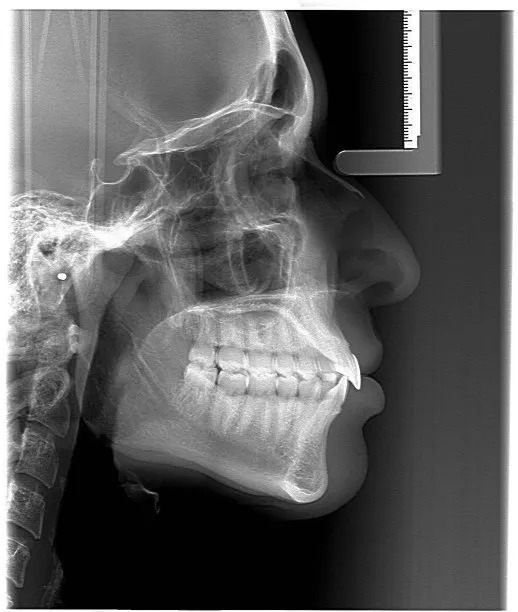Summary: Before undergoing root canal treatment, patients must consider several essential factors to ensure a seamless and effective experience. This article outlines the significance of understanding the procedure, preparing for it mentally and physically, discussing potential risks with the dentist, and following proper aftercare protocols. By being well-informed and prepared, patients can alleviate anxiety and improve the chances of a successful outcome. Each aspect discussed in this article serves as a guide to help individuals navigate their dental health journey more confidently.
1. Understanding the Root Canal Procedure

Before diving into treatment, its vital for patients to gain a clear understanding of what a root canal involves. Essentially, this procedure aims to remove infected or damaged pulp from within the tooth, thereby preserving it and alleviating pain. Knowing the steps involved can demystify the process and reduce anxiety.
Patients should familiarize themselves with the duration and potential discomfort associated with the procedure. Typically, a root canal treatment might take between one to three appointments, depending on the complexity of the tooths condition. Being informed about this timeline can help patients manage their expectations and schedule accordingly.
Moreover, understanding the alternatives to root canal treatment is essential. Patients should discuss with their dentist the repercussions of not undergoing the procedure, such as tooth extraction, ensuring they are making an informed decision about their dental health.
2. Mental and Physical Preparation
Mental preparation plays a significant role in a patient’s experience during a root canal. Anxiety about dental procedures is common; however, addressing these feelings can greatly enhance comfort. Engaging in relaxation techniques such as deep breathing or visualization can help calm nerves before the appointment.
Physical preparation is equally important. Patients should maintain proper oral hygiene leading up to the procedure—brushing and flossing can help reduce the risk of further infection. Patients may also want to have a light meal before the appointment, as post-treatment may involve sensitivity or the inability to eat for a short period.
Additionally, arranging for a friend or family member to accompany them can make the experience less daunting. Having support can provide reassurance and aid in transportation, especially if sedation is necessary during the procedure.
3. Discussing Risks and Expectations with the Dentist
Before the procedure, it’s crucial for patients to openly discuss potential risks and their expected outcomes with their dentist. Every medical procedure comes with inherent risks, and understanding them can help in mitigating concerns. Dentists should provide detailed information about complications, such as reinfection or failure of the procedure.
Patients should also communicate their medical history, including any medications they are taking and underlying health conditions. This information helps the dentist tailor the treatment and reduce the risks associated with anesthesia and healing.
Setting realistic expectations is also a key discussion point. Patients should understand that while root canals can save a tooth, it’s essential to have post-treatment follow-ups to monitor the tooth’s condition, ensuring long-term success.
4. Aftercare and Follow-Up Protocols
Aftercare is a critical aspect of a successful root canal treatment. Patients should follow their dentists recommendations for pain management, which may include over-the-counter painkillers. Resting for a day or two post-procedure allows the body to recover and reduces discomfort.
Maintaining oral hygiene after the treatment is crucial. Patients should avoid hard or sticky foods, which could compromise the temporary filling placed in the tooth. Following up with the dentist within the advised timeline is essential for assessing healing and addressing any issues that may arise.
Moreover, patients should observe any unusual symptoms, such as prolonged pain or swelling, and be proactive in reporting these to their dentist. Being attentive to these signs can prevent further complications and ensure optimal recovery.
Summary:
Understanding the preparations and considerations necessary for a root canal treatment can empower patients to approach the procedure with confidence. By knowing what the process entails, preparing mentally and physically, discussing risks with the dentist, and adhering to aftercare instructions, individuals can significantly improve their treatment outcomes.
This article is compiled by Vickong Dental and the content is for reference only.
Vickong Dental
Vickong Dental is a large medical group established in Hong Kong in 2008 by professors from well-known medical universities in Guangdong and Hong Kong, as well as medical doctors from key national '985' universities (including Master's supervisors and senior professors). The chain of branches brings together expert dentists with PhDs and Master's degrees from Hong Kong and Mainland China, committed to providing high-quality dental treatment.
"Vickong Dental Practices the University Motto of 'Healing and Serving Society,' with a Stable Operation for Sixteen Years. It Has Been honored with Hong Kong Enterprise Leaders's Choice,' and is a Global Trusted Implant Center for the Nobel Implant System. Recommended by Hong Kong Metro Broadcast and Guangdong Television, it Serves Customers from Over Thirty Countries and Regions, Gaining the Trust and Favor of Citizens from the Guangdong-Hong Kong-Macau Greater Bay Area and Surrounding Cities.

Thousands of customers' unanimous praise
The most recognized and highly recommended dental service by customers in the Guangdong-Hong Kong-Macau Greater Bay Area
We Ensure You Receive Detailed Care and Attention Here
Hong Kong standards, Shenzhen prices, Your Trusted English-speaking dentists

Vickong Dental Medical-Grade Instrument Disinfection Process
Vickong Dental Medical-Grade Instrument Disinfection Process

Vickong Dental Chain: A Warm and Comfortable Environment for Treatment






Appointment Hours

Q&A
Why choose Vickong Dental?
Vickong Dental practices the university motto 「Medicine to Benefit Society」, with each branch bringing together highly qualified dentists with doctoral and master’s degrees from Hong Kong and the Mainland, and has maintained seventeen years of steady operation。Recipient of 「2024 Hong Kong Enterprise Leaders Brand」, 「2025 Hong Kong Enterprise Leaders Brand」, a Nobel Biocare Global Trusted Implant Center, and a brand recommended by Metro Radio Hong Kong and Guangdong TV。
To date, we have served customers from more than thirty countries and regions,earning exceptionally high word-of-mouth recognition and trusted recommendations from residents across the Guangdong-Hong Kong-Macao Greater Bay Area and surrounding cities
We have eight major branches in Zhuhai、Shenzhen,and a consultation and service assurance center in Hong Kong,so you can book a free consultation at any time for any questions,which is very reassuring.
If I do not accept the quotation after the CT scan, will I be charged??
No! As long as the actual treatment has not started, you will not be charged any fees.
Will there be any additional charges during the treatment process?
No, there won’t be any additional charges. Before treatment begins, we will clearly explain the treatment plan and its corresponding fees. Only after the patient agrees and signs the consent form will we proceed with the dental service.
Can I pay in Hong Kong dollars?
Yes. Vickong Dental accepts payment in Hong Kong dollars. The amount will be converted based on the exchange rate of the day, and the applicable rate will be clearly communicated to you in advance.
Can I reschedule my appointment at any time?
Yes. Please contact us via **WeChat** or **WhatsApp** as early as possible, providing your original appointment time and details, along with your preferred new date and time slot for rescheduling.













